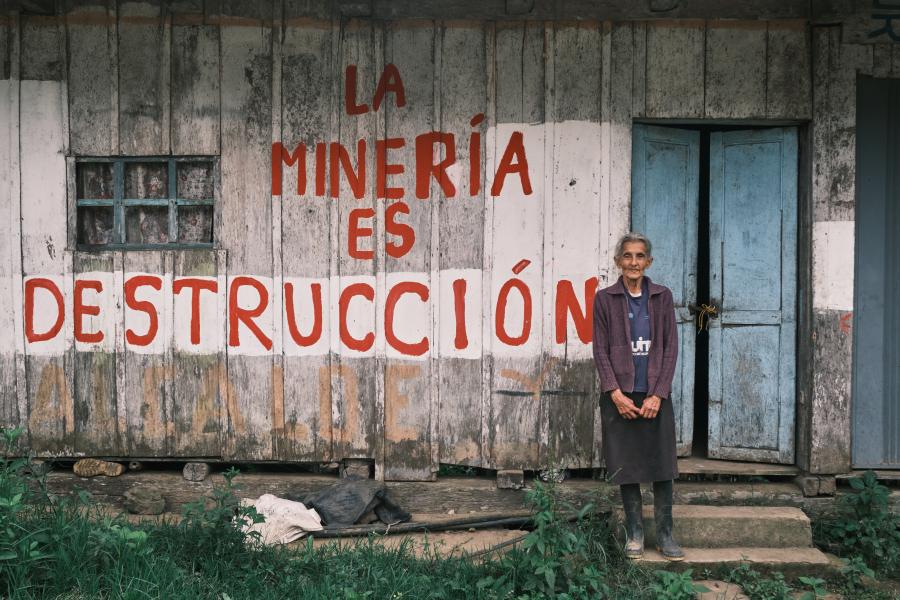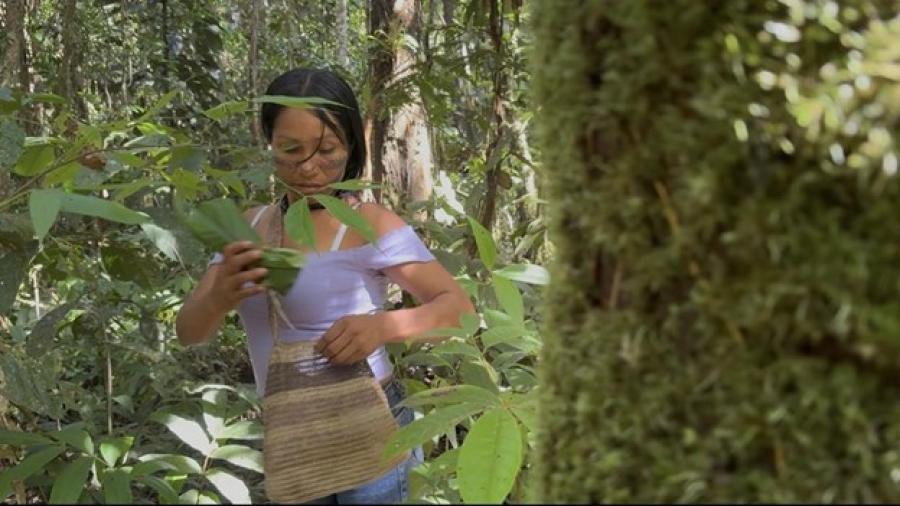An historical event took place on January 15, 2003, barely noted by speculative international observers. As Lucio Gutierrez took the oath of office as president of Ecuador, and later repeated his campaign promises to eliminate Ecuador's infamous corruption and alleviate its extraordinary rural poverty, international press services focused on the guests at the inauguration ceremony, particularly Cuba's Fidel Castro, Brazil's Luiz Inacio Lula da Silva, and Venezuela's Hugo Chavez. The Associated Press reported January 15 that the inauguration was a significant event because "it was the first time that Castro, da Silva and Chavez—all of them leftists—and Gutierrez, who describes himself as center-left but enjoyed the support of leftist groups during his campaign, had gathered in the same place." Also noted was the coincidence and irony that three years before, on January 21, 2000, then-Army colonel Gutierrez led a coup attempt which ousted President Jamil Mahuad and left Gutierrez cashiered and jailed. It's still too early to pass judgment on the rise of a populist left in Latin America or the magical realism of Ecuadoran politics, but other patterns at the inauguration illustrate truly significant social and political change in the Andean republic.
As in January 2000, news reports of the inauguration and elections simply noted that Gutierrez obtained much of his support from Ecuador's indigenous peoples (nearly 40 percent of the population in Ecuador) and their organizations. Those accounts were understatements. Both CONAIE, the national Indian organization, and the largely indigenous political party Movimiento Pachacutik-Nuevo Pais made major leaps in the elections of November 2002 and the subsequent maneuvering for high-level cabinet positions in the Gutierrez administration. In summer 2002, acknowledging that their chosen presidential candidate, Indian mayor Auki Tituaña, was unlikely to be elected president, CONAIE leaders and Pachacutik backed Gutierrez. The indigenous voters who comprise both organizations gave him enough votes to move into and eventually win the November run-off elections.
Though they had felt betrayed in 2000 when the military high command replaced the ousted Mahuad with his relatively conary 15, 2003, barely noted by speculative international observers. As Lucio Gutierrez took the oath of office as president of Ecuador, and later repeated his campaign promises to eliminate Ecuador's infamous corruption and alleviate its extraordinary rural poverty, international press services focused on the guests at the inauguration ceremony, particularly Cuba's Fidel Castro, Brazil's Luiz Inacio Lula da Silva, and Venezuela's Hugo Chavez. The Associated Press reported January 15 that the inauguration was a significant event because "it was the first time that Castro, da Silva and Chavez—all of them leftists—and Gutierrez, who describes himself as center-left but enjoyed the support of leftist groups during his campaign, had gathered in the same place." Also noted was the coincidence and irony that three years before, on January 21, 2000, then-Army colonel Gutierrez led a coup attempt which ousted President Jamil Mahuad and left Gutierrez cashiered and jailed. It's still too early to pass judgment on the rise of a populist left in Latin America or the magical realism of Ecuadoran politics, but other patterns at the inauguration illustrate truly significant social and political change in the Andean republic.
As in January 2000, news reports of the inauguration and elections simply noted that Gutierrez obtained much of his support from Ecuador's indigenous peoples (nearly 40 percent of the population in Ecaudor) and their organizations. Those accounts were understatements. Both CONAIE, the national Indian organization, and the largely indigenous political party Movimiento Pachacutik-Nuevo Pais made major leaps in the elections of November 2002 and the subsequent maneuvering for high-level cabinet positions in the Gutierrez administration. In summer 2002, acknowledging that their chosen presidential candidate, Indian mayor Auki Tituaña, was unlikely to be elected president, CONAIE leaders and Pachacutik backed Gutierrez. The indigenous voters who comprise both organizations gave him enough votes to move into and eventually win the November run-off elections.
Though they had felt betrayed in 2000 when the military high command replaced the ousted Mahuad with his relatively conservative Vice President Gustavo Noboa, CONAIE and Pachakutik had continued their work steadily and astutely to increase the political space and respect that Ecuador's indigenous movement had accumulated over 25 years through consistent, non-violent, political consolidation and periodic, highly symbolic mobilizations.
Unlike previous elections in Ecuador, the Indian vote in 2002 was neither mustered nor seduced by paternalistic promises. The elections were seen as a way to advance what the indigenous leadership has called "plurinationalism," the recognition that Ecuador's numerous cultures, including its indigenous peoples, would remain distinct but must contribute to and benefit from all public policy as equals. Such ideas would probably have remained utopian dreams if the indigenous movement had relied on the Ecuadoran Congress, in which the combined votes of Gutierrez's Sociedad Patriotica Party (PSP) and the indigenous Pachakutik are now dwarfed by those of the traditional parties, thus foreshadowing complex political negotiation, and perhaps chaos. Nevertheless, indigenous candidates won nine congressional seats, placed nine members in powerful provincial councils, and took 55 seats in municipal councils. These wins are significant and consistent with the plan to increase participatory democracy by beginning at the local level.
Gutierrez's cabinet is truly revolutionary. He selected co-founders of Pachacutik, two of Ecuador's most prominent, respected, educated, and outspoken Native American leaders. Nina Pacari, a lawyer and congresswoman from the Otavalo region, now sits as Ecuador's—and the world's—first Native American woman Minister of Foreign Relations. Heading the equally important Ministry of Agriculture is Luis Macas, a linguist and lawyer, one of the founders and ex-president of CONAIE, and Ecuador's first indigenous congressman. If anyone thinks these two are token or quiescent appointments, they need only wait and watch. Macas and Pacari's impact will be seen nationally and internationally, and comes at a critical time in Latin America. These indigenous leaders already serve as highly visible and vocal bellwethers for U.S. policy and practices in the region. Pacari has been a strong critic of the United States' use of the air base at Manabi for its logistic support to Plan Colombia. Even though she has agreed not to try to dismantle the base, she will lead a chorus of those already concerned with U.S. military presence in the region. Macas, in turn, has been highly critical of the displacement of traditional indigenous agriculturalists by extensive agri-business estates that feed only international markets. Neither minister sees any benefit for Ecuador's poor farmers through the proposed Free Trade Area of the Americas. Yet neither is so shortsighted or cavalier as to suggest that Ecuador simply write off the over $11 billion dollar foreign debt the Gutierrez government has inherited.
While Ecuador remains a minor regional political and economic power, Pachacutik's familiar rainbow flag now stands as a highly symbolic beacon to be watched in regard to two of the world's most timely issues, multiculturalism and globalization. Which ever way that light shines, it will illuminate what happens when previously marginalized populations move, in a democratic and nonviolent manner, to the core of public life and debate. The elites of other oil-producing nations would be well advised to watch, and perhaps to work to emulate such actions.
Theodore Macdonald is the associate director of the Program on Nonviolent Sanctions and Cultural Survival at Harvard University.


